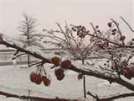
ESFI Offers Electrical Safety Tips for Severe Winter Weather
Communities across the United States are being devastated by severe winter weather conditions that are leaving thousands of people without power. The Midwest has recently become the latest region to be hit, as evidenced by the ongoing relief in response to the effects of a deadly weekend ice storm that cut power to more than 600,000 people in Kentucky.
"Consumers are encouraged to unplug or turn off all electric appliances -- from televisions and computers to electric ranges -- in the event of a power outage, in order to avoid a circuit overload when the power is restored," said Brett Brenner, president of the Electrical Safety Foundation International (ESFI). "Leave one single lamp turned on so you will know when your power is restored. Then, turn your other appliances and electrical devices on one at a time in order to avoid a surge that could potentially start a fire."
Hazardous conditions that threaten public safety, including electrical fires, high water, downed power lines, and carbon monoxide, have emerged in the aftermath of these snow and ice storms. "ESFI is reminding everyone about the importance of respecting the power of electricity in your homes and your communities," Brenner said. "By following basic guidelines for electrical safety in a variety of different circumstances, we can all help to ensure that our responses in any situation are guided by our emphasis on safety."
ESFI offers the following important electrical safety tips for severe winter weather hazards:
Post-Storm Safety Tips
• When re-entering your home after a storm, do so during daylight hours, when it is easier to avoid hazards, particularly if the electricity is off and you have no lights.
• If you smell gas, notify emergency authorities and do not turn on the lights, light matches, smoke, or do anything that could cause a spark. Do not return to the house until you are told it is safe to do so.
• Watch for downed power lines outside your home. Keep your utility companies' phone lines open by only calling to report an emergency such as a downed power line.
Portable Generator and Electrical Equipment
• When power lines go down during a storm and cause electrical outages, portable generators are a popular alternative source of electricity; however, they also can be a source of danger. Take special care with portable electric generators, which can provide a good source of power, but if improperly installed or operated, can become deadly.
• A primary hazard when using a generator is carbon monoxide poisoning from the toxic engine exhaust. Never operate a generator inside your home, basement or garage. Put generators outside, away from doors, windows and vents.
• NEVER connect a portable generator directly to your home's wiring or into a regular household outlet. Power from generators can back feed along power lines and electrocute anyone coming in contact with them, including utility workers making repairs.